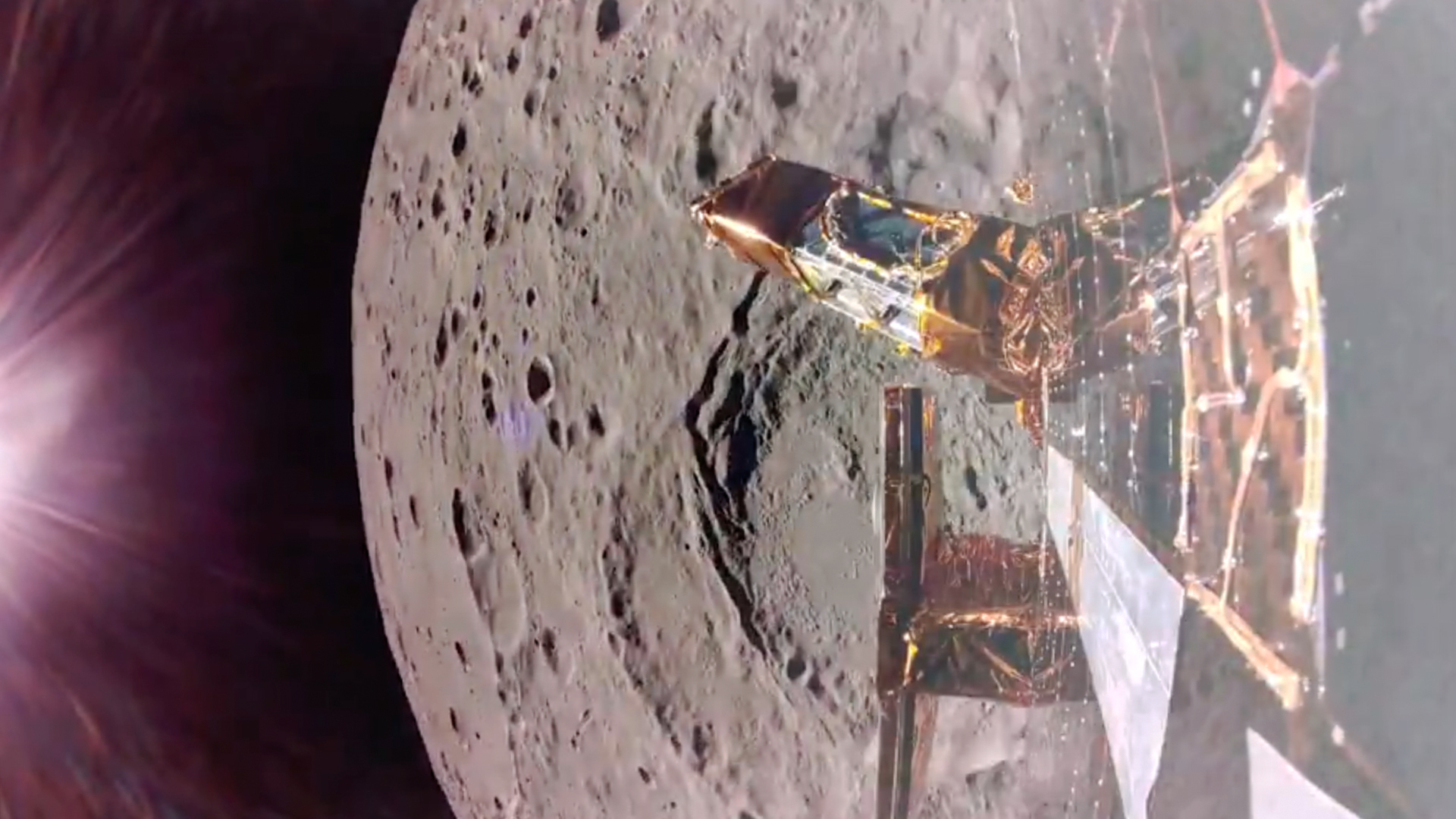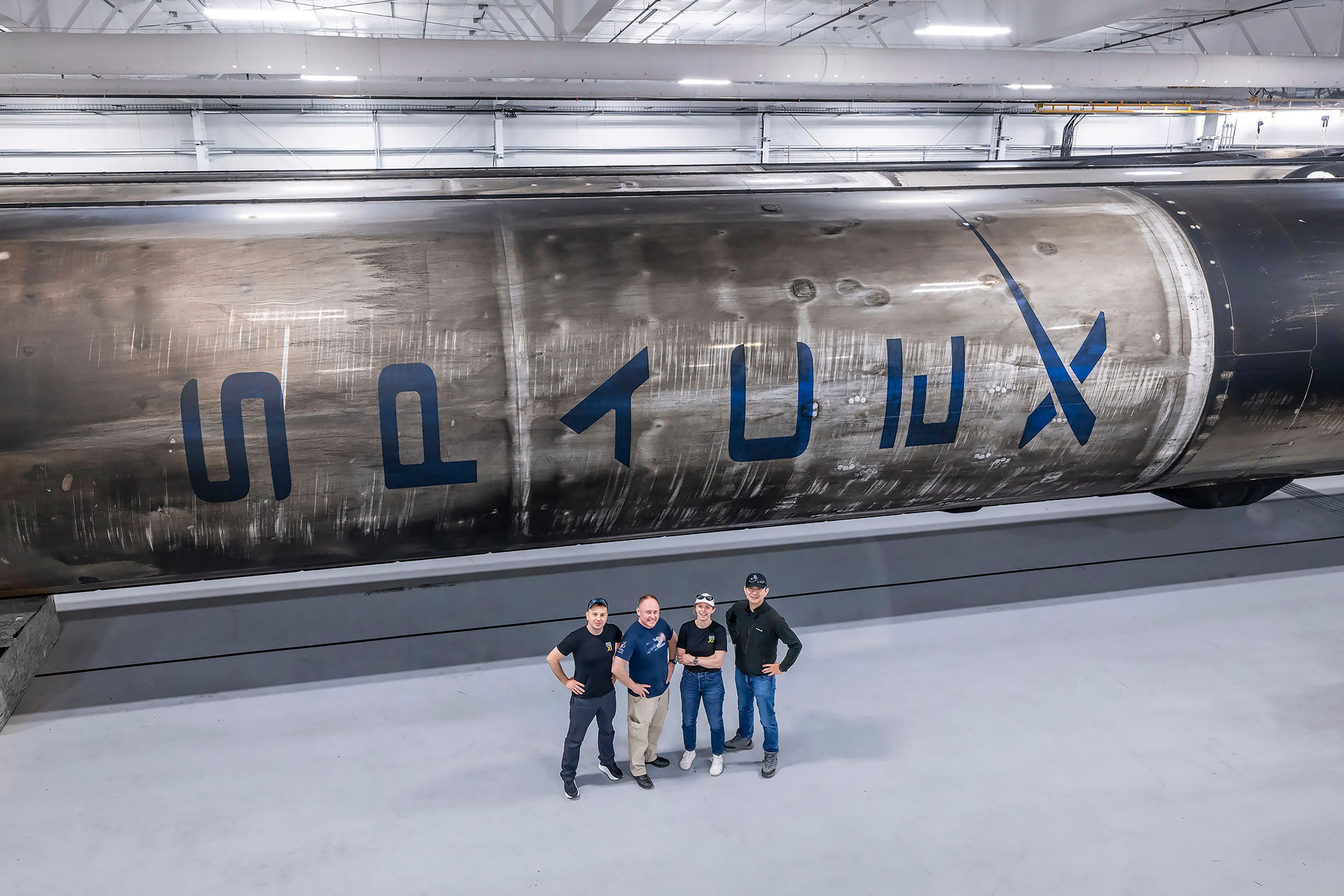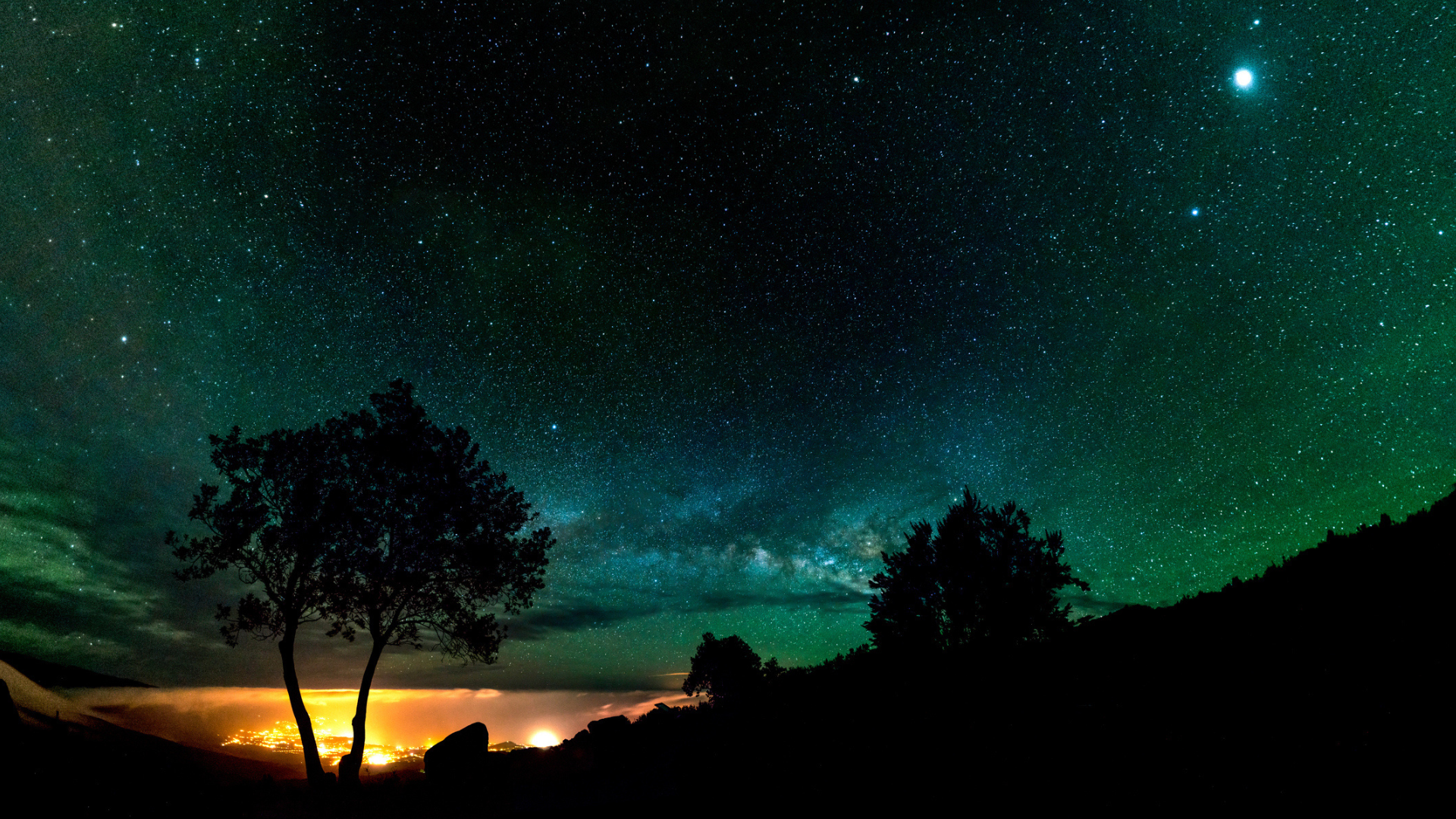Spaceflight companies set limit on carry-ons: souvenirs not for sale
"You can't sell it," says William Shatner.
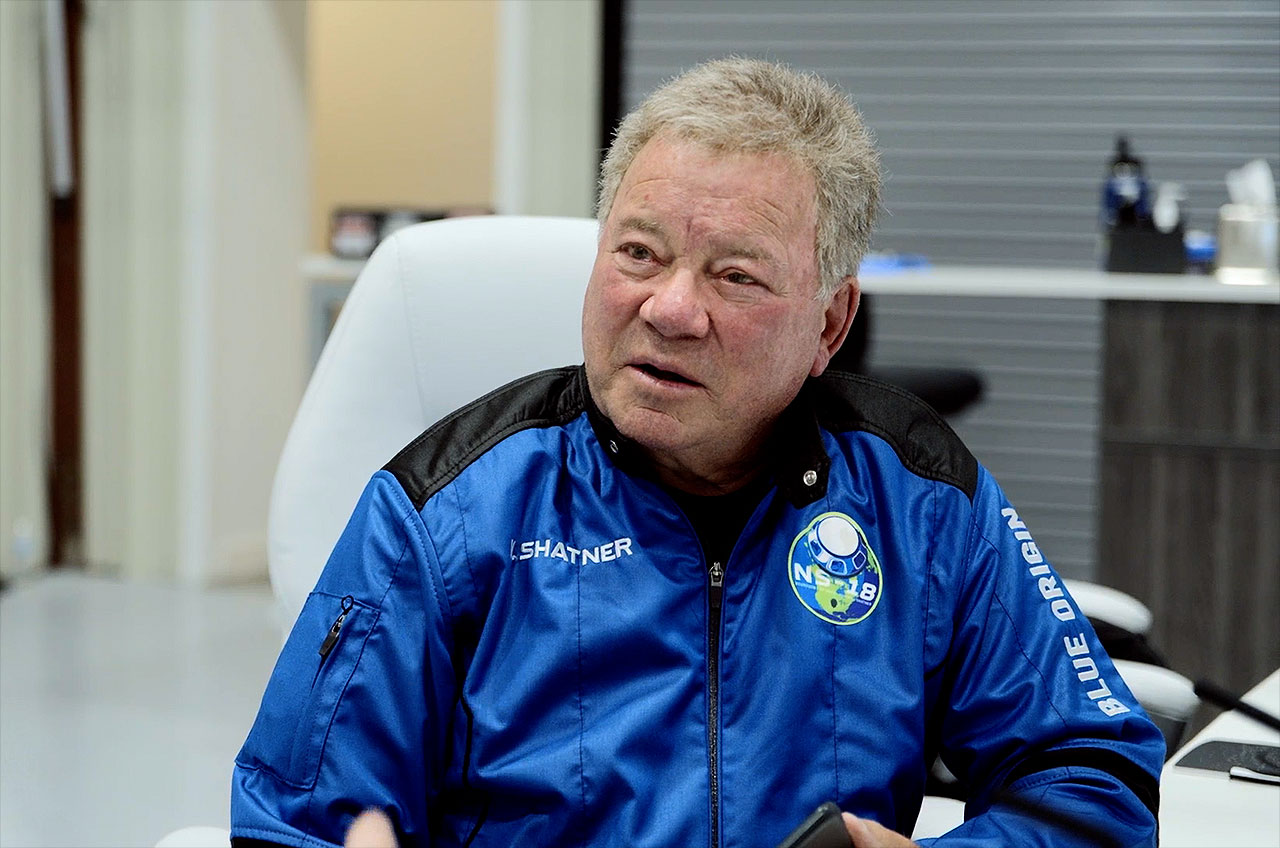
Captain Kirk may have bucked the rules while helming the Starship Enterprise, but when it comes to flying in space for real, William Shatner is apparently abiding by the terms set forth by Blue Origin.
The "Star Trek" actor-turned-soon-to-be-astronaut revealed one of the company's lesser-known restrictions while discussing the personal items he was packing for his New Shepard rocket ride this week.
"They've allowed me to take a little blue bag full of mementos, so I've got family and friends collecting little mementos so I can bring [them] up," Shatner said in an interview with CNN anchor Anderson Cooper. He then quickly added, "you can't sell it."
"You can't monetize it," said Shatner, of the kit's contents. "No, this is for your little purposes."
Live updates: Follow William Shatner's Blue Origin launch here
The rule — which might dash the hopes of some Star Trek fans thinking they could someday buy something that flew with Shatner into space — is not unique to the actor. It applies to all of Blue Origin's passengers, including Shatner's three NS-18 crewmates: Chris Boshuizen of Planet Labs, Glen de Vries with Dassault Systems and Audrey Powers, Blue Origin's head of mission operations.
"Our terms prohibit people from selling anything they fly on board with them," said a Blue Origin spokesperson in response to an inquiry by collectSPACE.com. "The terms prohibiting this are included in one of the documents astronauts are required to sign before they fly on New Shepard."
Get the Space.com Newsletter
Breaking space news, the latest updates on rocket launches, skywatching events and more!
Related: Star Trek movies, ranked worst to best
Commercial space, minus the commercial
Blue Origin, which was founded by former Amazon CEO Jeff Bezos, would not go into further detail as to its ban on clients selling their space souvenirs.
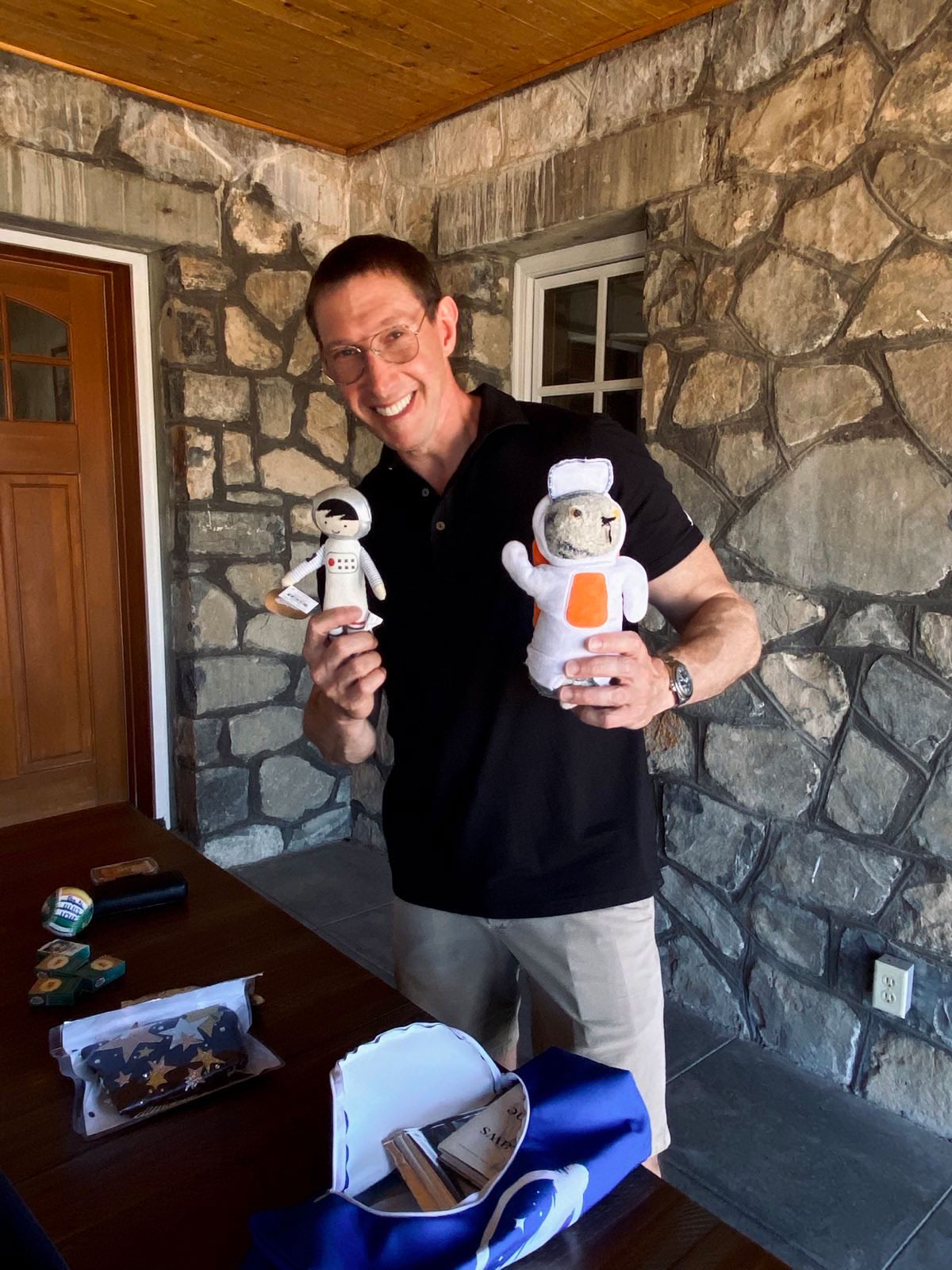
"The terms of our launch services contract are confidential," explained Sara Blask, senior manager for public relations at Blue Origin.
Virgin Galactic, billionaire Richard Branson's commercial spaceflight company and a competitor to Blue Origin, has a similar policy for passengers launching items on its SpaceShipTwo rocket plane.
"We will allow our 'Future Astronauts' to take up personal mementos, but of course need to make sure these fit with our safety regulations and commercial principles. They need to be small enough to fit in the pockets of the flight suit, pass our technical requirements and not conflict with our brand," wrote Clare Pelly, head of the astronaut office at Virgin Galactic, in an email to collectSPACE.
Photos and other items of a personal nature should be fine, according to Pelly, and they can be shared with the passenger's friends, family and community as desired. But the company will prohibit items that can be commoditized.
"Our policy is not to allow any commercial exploitation of flight reservations and we will want to ensure that the flight experience for private individuals is not compromised by obligations to third parties," wrote Pelly. "This will be covered in the Conditions of Carriage that each customer will sign in the lead up to their flight, and will set out limitations and restrictions on use of mementos."
Personal preference kits
The practice of astronauts (and cosmonauts) flying personal items on their missions dates back to the very early days of the human spaceflight. At first, these small mementos were rarely looked at as having any monetary value and were seen more as gifts for family, friends and coworkers.
As human activities in space expanded, though, the public's interest in owning a piece of the program grew along with it. It was not too long before some of the astronauts' personal preference kits (PPKs) began to include items provided by commercial interests — which either traded or outright compensated crew members for flying items to be later sold.
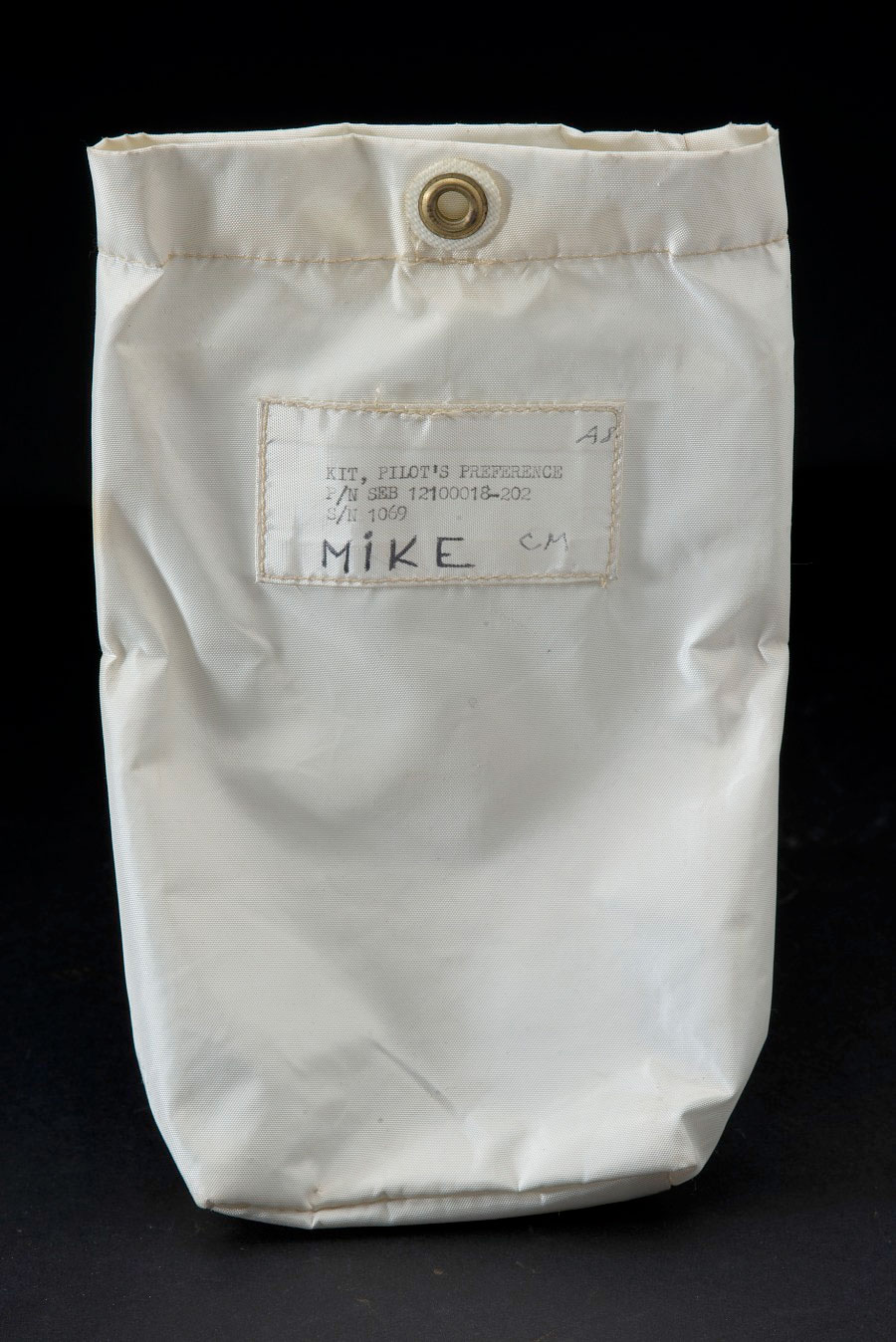
As spaceflight was then still a government-led affair, these side deals drew the attention of lawmakers, who sought to put an end to any profiteering from a taxpayer-funded activity. Ultimately, NASA had to codify what was acceptable as the astronauts' personal items, specifically restricting any PPK-flown item from being "sold, transferred for sale, used or transferred for personal gain or used or transferred for any commercial or fundraising purpose."
Further, "items such as philatelic [stamp-related] materials and coins that, by their nature, lend themselves to exploitation by the recipients," were outright banned — a restriction that exists to this day.
Those rules, however, only apply to NASA astronauts until they retire from government service. Then they are free to sell, donate or otherwise dispose of as they please any of the space-flown personal items they were allowed to keep from their missions. (A similar scenario applies to other space agencies' astronauts, though some are more open to their crew members taking part in commercial opportunities than is NASA.)
It is unclear if a similar expiration will apply to passengers on Blue Origin, Virgin Galactic or other companies' flights, or if exceptions will be made.
SpaceX, for example, recently completed Inspiration4, its first privately-funded astronaut mission. The crew used the sale of flown mementos to further their goal of raising $200 million for St. Jude Children's Research Hospital. It was unclear if they were limited to charitable sales or if they could have also sold items for their personal gain if they so chose.
Pelly said that "as a point of principle" Virgin Galactic would not be against anything that raises funds for charity, but their rules governing such are still being worked out. The company plans to begin flying paying passengers in 2022.
As for Shatner and his Blue Origin crewmates, their items will remain personal.
"I have got three or four little trinkets from people," said Shatner. "They will stay in that little blue satchel."
Follow collectSPACE.com on Facebook and on Twitter at @collectSPACE. Copyright 2021 collectSPACE.com. All rights reserved.
Join our Space Forums to keep talking space on the latest missions, night sky and more! And if you have a news tip, correction or comment, let us know at: community@space.com.

Robert Pearlman is a space historian, journalist and the founder and editor of collectSPACE.com, a daily news publication and community devoted to space history with a particular focus on how and where space exploration intersects with pop culture. Pearlman is also a contributing writer for Space.com and co-author of "Space Stations: The Art, Science, and Reality of Working in Space” published by Smithsonian Books in 2018.In 2009, he was inducted into the U.S. Space Camp Hall of Fame in Huntsville, Alabama. In 2021, he was honored by the American Astronautical Society with the Ordway Award for Sustained Excellence in Spaceflight History. In 2023, the National Space Club Florida Committee recognized Pearlman with the Kolcum News and Communications Award for excellence in telling the space story along the Space Coast and throughout the world.

